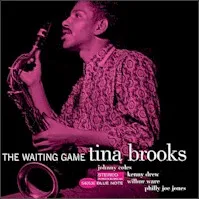Time: 42:08
Size: 96.5 MB
Styles: Bossa Nova, Brazilian jazz
Year: 2007
Art: Front
[5:11] 1. Momento
[4:25] 2. Bring Back The Love
[3:16] 3. Close To You
[3:36] 4. Os Novos Yorkinos
[3:09] 5. Azul
[4:30] 6. Caçada
[4:51] 7. Night And Day
[4:01] 8. Tranquilo
[3:07] 9. Um Segundo
[3:27] 10. Cadê Você
[2:30] 11. Words
On her self-titled 2004 sophomore album, Bebel Gilberto ditched the loungey grooves she explored on her debut and stuck to mostly acoustic elements -- guitars, percussion, strings -- to complement her voice, but her next release, Momento, finds the singer returning to both electronica and more traditional bossa nova. Gilberto is still, of course, thoroughly modern, with a much more lush, produced sound than her predecessors had (including her father), but it works for her, the overall gentle ambiance she's trying to create, even when she's singing old favorites. In Chico Buarque's lovely "Caçada," she adds more bass to the underbelly of the song and lets the woodwinds play a bigger role, and the cover of Cole Porter's "Night and Day" comes off well, gentle, and with a jazzy tenor sax solo. In fact, it's when Gilberto stays simple, and looks more closely at her roots for inspiration, that she sounds the best. It's her ventures into the Rio lounge world that are less interesting, safe to a fault. Gilberto's unfortunately perfected the Brazilian version of smooth jazz or adult contemporary, shown all too clearly on songs like "Cadê Você" or "Bring Back the Love" (which features all four members from the non-Brazilian Brazilian Girls), with their programmed drums and keyboards layered behind her voice. It's too much, too clean, too pretty, sounding nice but nothing more. To be fair, the singer has never tried nor claimed to be cutting-edge, or to challenge her audience, but tracks like "Close to You" and "Momento" are so inoffensive they're hard to pay much attention to. It's very possible to be both memorable and smooth, remarkable and mild (and this is something Gilberto is capable of, like on the sparse "Um Segundo" or the mellow "Os Novos Yorkinos," for example), but more often than not, Momento ends up a shallow listen. This CD was nominated for a Grammy award in 2007 for Best Contemporary World Music Album. ~Marisa Brown
Momento




















